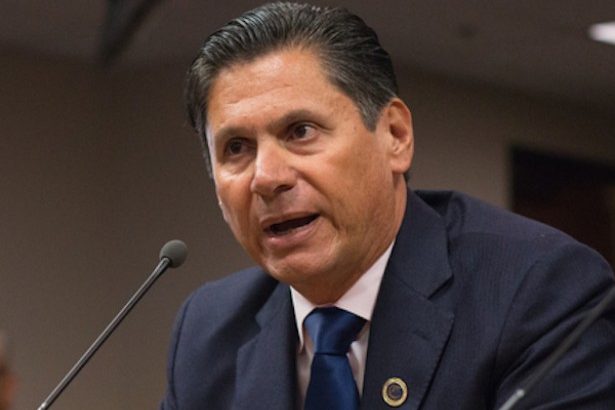State Board of Community Colleges approves budget priorities
The State Board of Community Colleges briefly convened in open session Wednesday long enough to approve Margaret Annunziata as new president of Isothermal Community College and to give a thumbs up to the system’s budget priorities for the upcoming long session of the General Assembly.
The bulk of this week’s two-day meeting of the State Board was in closed session, with the board privately considering candidates for the next president of the community college system. President Peter Hans left the position this summer to take the helm of the UNC System, and State Board members have said they intend to fill the vacancy by the end of the year.
While no news has come out of this week’s presidential discussions as of yet, we do now know that Annunziata, the vice president of academic affairs at Davidson Community College, will be taking over for Lt. Gov. Walter Dalton who is retiring as president of Isothermal Community College in February.
Annunziata has previously served as director of student success and institutional assessment at Davidson Community College, coordinator of its continuing education programs, and as director of the college’s child development center.
The State Board also clarified this week what the system is hoping for from lawmakers in the new year.
One of Board members’ chief priorities is leftover from the last long session. Lawmakers granted almost all of the community college’s wishes in 2019, with the exception of funding to increase salaries for personnel at community colleges around the state.
The system is now looking for $62 million in recurring dollars to bolster employee salaries.
According to Elizabeth Grovenstein, chief financial officer for the North Carolina Community College System, North Carolina’s community college faculty rank 40th in the nation for pay, and the funding increase is meant to fund a 5% increase in salary.
Given the COVID-19 pandemic and its impact on community colleges around the state, the State Board is also asking for an as yet undetermined amount of money to stabilize community college budgets. Just prior to COVID-19, the system was celebrating increased enrollment.
However, the impact of the pandemic and the measures taken to keep students and staff safe have taken their toll, and preliminary estimates foretell a drop in enrollment for community colleges. Less enrollment could mean less funding, so the system is asking for non-recurring money to keep community college budgets at at least 98.5% of 2020-21 funding levels. Grovenstein said the exact funding figures aren’t clear yet because final data isn’t available to measure enrollment.
K-12 districts, which are funded differently than community colleges in North Carolina, received a hold harmless from lawmakers this year to ensure they didn’t lose funding as a result of lower enrollment.

The Board is also seeking $3.5 million in recurring and $28.5 non-recurring to upgrade the IT system serving its colleges, including for online registration for short-term workforce continuing education.

As an addendum, the priorities voted on by the Board also included the desire to be included in any capital or equipment funding plans that come out of the General Assembly. Lawmakers have been debating with each other and Gov. Roy Cooper since 2019 about capital funding proposals, with some arguing for a pay-as-you go approach and others backing a bond plan. Neither have come to fruition thus far.
In addition, the State Board is requesting recurring funding for the Surry Community College Yadkin County Multi-Campus Center, which received preliminary approval from the Board in October.
Fuente de la Información: https://www.ednc.org/2020-12-09-state-board-of-community-colleges-approves-budget-priorities/








 Users Today : 40
Users Today : 40 Total Users : 35460303
Total Users : 35460303 Views Today : 59
Views Today : 59 Total views : 3419027
Total views : 3419027